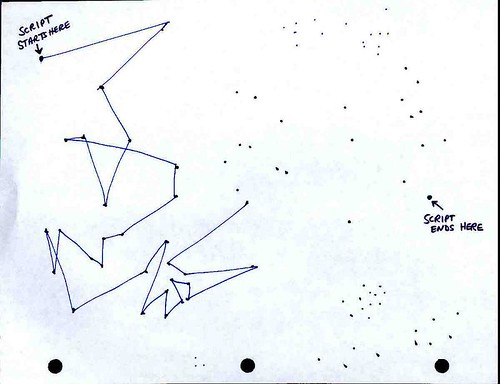I'd like to address the drinking solution on this thread.
But before I do want to precise that I happily party my liver to helm, and that Alcohol does great things. And I'm not addressing this to anyone personally, and I tend to be a rather straightforward guy, so if you get the impression I'm offensive, it's not my goal, I'm really only trying to share my point of view and possibly help out. Also I've never written a screenplay, but I'll go ahead and write a few tonight, or at least start out on a few tonight, or at least one depending on how far away my mind goes.
Having said that, in this case, you drink to write your screenplay. It's like guys who down a few shots before going to speak to the hottie on the other side of the bar. The issue isn't how well they can chat up girls, it's how well they think they can chat up girls.
And I agree Alcohol gives you that don't give a shit feeling, but practice to chat the girls up without the booze.
Because the reason you're drinking before writing screenplays is you double think you don't have confidence in your ability to write a screenplay. You get writers block because you don't believe that you can write a great screenplay. Alcohol will solve the problem for a while, but really it's as if an overweight guy bought this tee shirt:
I could advise you reading Seth Godins latest two books: Linchpin and Tribes. The first is about releasing the inner Artist in you to become indispensable, and the second one is about Leadership. If you had to choose, buy linchpin.
And to quote (well it's along these lines)DV Rebels Guide's Author " If I tell you your tenth screenplay will be great how will you feel about writing the first 9?".
Don't ever buy a book with a step by step guide Do A then B then C for anything. You don't need someone elses map. Make your Own. I don't think I'll ever buy a screenplay book( although never say never).
How do you write a screenplay? You take your idea, you run it through your mind, even mime it out if you need to, then write what your actors do, where they are what they say, and it would seem that you need the bare essential for a director to make a film with from what I read here. So skip the crap. And if you're like oh shit what does my guy say here? Just leave a blank, or write in something that seems crappy, and come back to it an other time.
Like in everything, The key is to GET STUFF DONE.
Hope I helped, And I'll happily drink with any of you guys to celebrate your latest screenplay you wrote.
Sam







